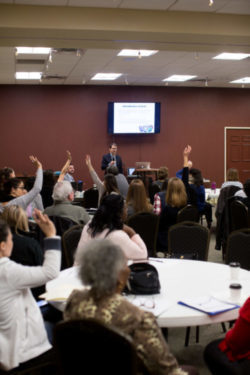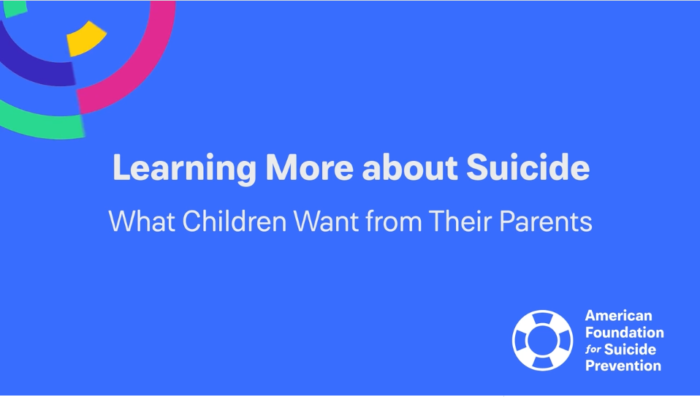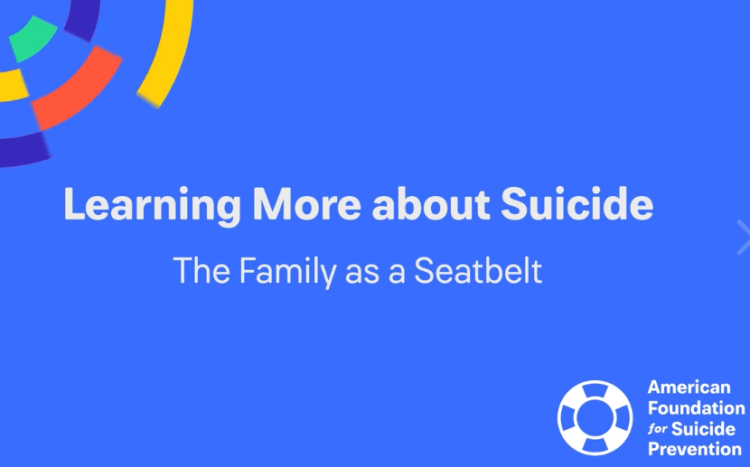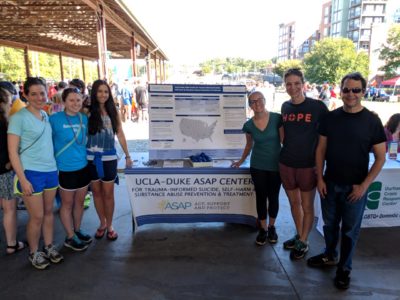News
 ASAP Center Partners with Project Fleur-De-Lis
ASAP Center Partners with Project Fleur-De-Lis
This month, the ASAP Center conducted a second Center training with Project Fleur-De-Lis as part of an ongoing collaboration to integrate suicide prevention programs into school settings. To learn more about the great work being done by the Project Fleur-De-Lis team, visit their site here.
This month, the Centers for Disease Control and Prevention (CDC) released a report indicating that tobacco use among US youth is increasing, primarily because of the growing popularity in e-cigarettes within this age group. Unfortunately, teens who use substances are at a higher risk for developing and/or worsening other mental health concerns. This is why the ASAP Center focuses on interventions that target substance abuse, depression, and suicidality. To learn more about how we do this, explore our interventions here.
Suicidal and self-harm behavior are all too common consequences of traumatic stress, placing youths at risk for death by suicide and premature deaths due to alcohol, drugs, accidents, and other causes. To learn more about this major public health issue and ways to address it, check out this new article on treatment and prevention of suicide and self harm in children and adolescents.
In 2018, the Centers for Disease Control and Prevention (CDC) published data indicating that suicide rates have risen by 34% in the past decade. Suicide was ranked the 10th leading cause of death in the US, causing the CDC to identify it as one of the most important health issues in 2018. Throughout 2019 and beyond, the ASAP Center will continue to work to reduce the suicide rate and help youth and families overcome mental health challenges. To learn more about our work, click here.
 “What Children Want from Their Parents” with Dr. Joan Asarnow
“What Children Want from Their Parents” with Dr. Joan Asarnow
Dr. Joan Asarnow (ASAP Center Co-Director) recently completed an interview with the American Foundation for Suicide Prevention (AFSP) on suicide prevention approaches for youth and families. You can check out part of her interview, “What Children Want from Their Parents,” here.
 “Improving Pediatric Emergency Care” with Dr. Joan Asarnow
“Improving Pediatric Emergency Care” with Dr. Joan Asarnow
Dr. Joan Asarnow (ASAP Center Co-Director) recently completed an interview with the American Foundation for Suicide Prevention (AFSP) on suicide prevention approaches for youth and families. You can check out part of her interview, “Improving Pediatric Emergency Care,” here.
 NIMH Live Event on Suicide Prevention
NIMH Live Event on Suicide Prevention
During Suicide Prevention Week in September, Dr. Joshua Gordan (NIMH, Director) and Dr. Jane Pearson (NIMH, Chair of the Suicide Research Consortium) hosted a live Facebook event to lead a discussion on suicide prevention strategies. You can now watch the video recording of the event, read the event transcript, and review the main takeaways here.
 “The Family as a Seatbelt” with Dr. Joan Asarnow
“The Family as a Seatbelt” with Dr. Joan Asarnow
Dr. Joan Asarnow (ASAP Center Co-Director) recently completed an interview with the American Foundation for Suicide Prevention (AFSP) on suicide prevention approaches for youth and families. You can check out part of her interview, “The Family as a Seatbelt,” here.
Thursday, October 11 is National Depression Screening Day. This year’s theme is “Reach Out,” which encourages individuals who might be dealing with depression to seek support from their social networks and health professionals. The goal of this effort is to emphasize the importance of screening for and the early detection of depression, which is one of the most common mental health concerns. The ASAP Center works to increase the use of prevention approaches for depression, suicide, self-harm, and substance abuse in a wide range of healthcare settings. To learn more about depression and related resources, click here.
 ASAP Center team presents poster at AFSP Out of the Darkness Walk
ASAP Center team presents poster at AFSP Out of the Darkness Walk
The American Foundation for Suicide Prevention (AFSP) hosts Out of the Darkness walks across the U.S. to promote suicide prevention efforts. The ASAP Center’s Duke team joined the movement and shared information about our Center as a community and national resource at the walk in Durham, North Carolina on September 30.
Interested in getting involved? Click here for more information.